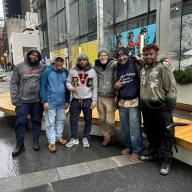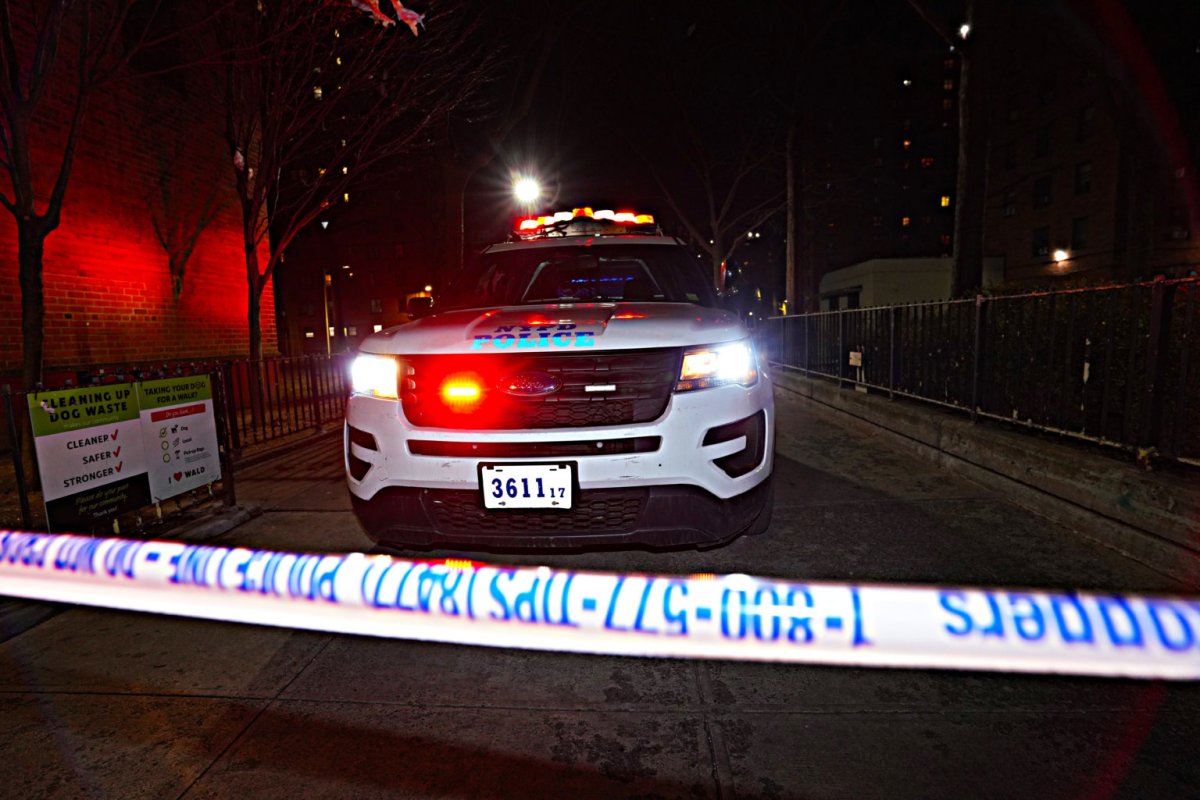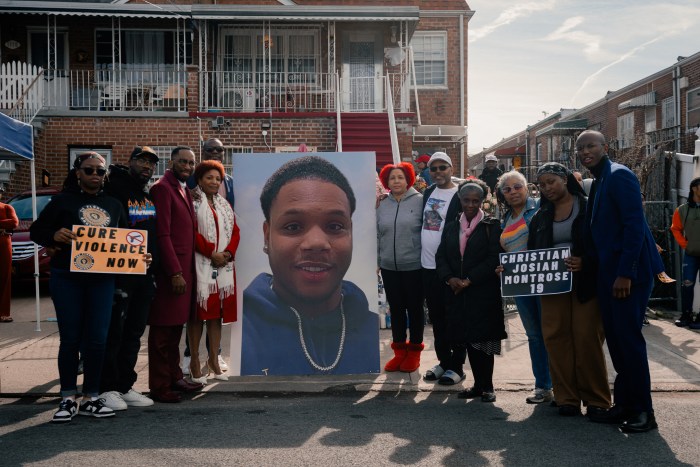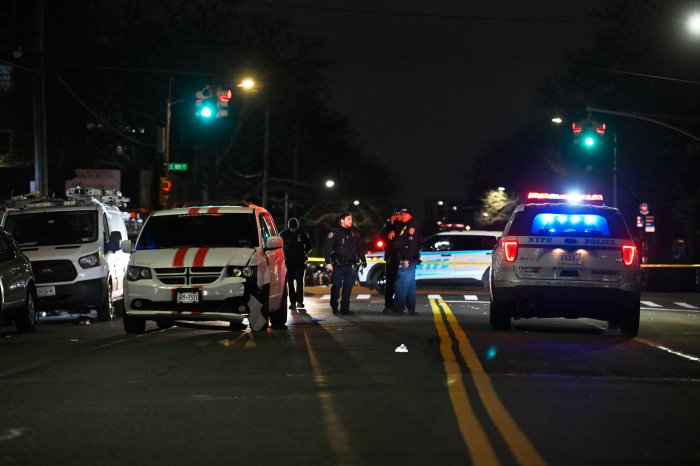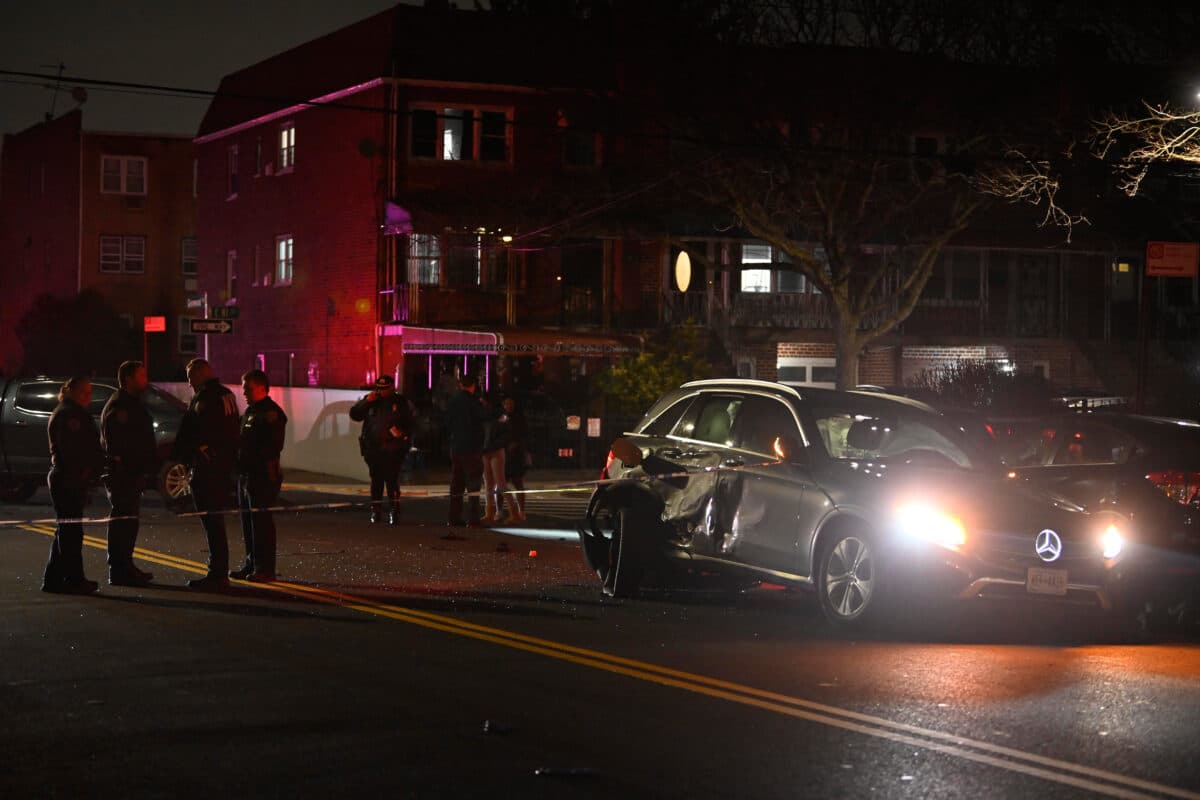Less than a week after five people perished in a Bensonhurst blaze, Canarsiens sat still and listened to a wealth of fire safety advice delivered by a veteran firefighter.
Firefighter Michael Jones, of the FDNY’s Fire Safety Education division, provided suggestions and free smoke detectors to those who attended the February meeting of the Friends United Block Association (FUBA), which was held at Temple Shaare Emeth, 6012 Farragut Road.
While Jones conveyed tips and admonitions with a sense of humor, there was a serious message behind all he said: A working smoke detector is a key asset when it comes to getting out of a burning home alive, and having an escape plan, practiced with family members, as well as a nearby meeting place, can also mean the difference between life and death.
“Most people who die in fires do not have a detector or it’s not working,” he stressed.
“So, it’s important for you to make sure your detector is working all the time,” Jones added. Batteries should be changed twice a year, when you reset your clocks, and smoke detectors should be replaced every 10 years, because they “start to malfunction after that,” Jones said. Carbon monoxide detectors last a shorter period of time, only five years, and combination detectors, he added, last six or seven years in total.
How often people take the batteries out of their smoke detectors, because of the annoying sound they makewhen cooking is going on, was remarked on by Jones, who told the crowd that he had often asked third and fourth grade children, during fire safety lessons, what is meant by the beeping sound the smoke detector makes.
“It means mom is finished cooking, dinner is ready and it’s time to eat,” is the response that Jones said he often hears.
Yet, no matter how annoying the sound, taking the battery out of a smoke detector could have deadly consequences. “Which sense stays awake at night?” he asked the crowd. While some guessed smell, Jones said it was “the sense of hearing,” which therefore enables a sleeping person to hear the alarm before he or she is overcome by smoke.
That can happen quickly, Jones added. “When you breathe in smoke,” he explained, “it works like anesthetic. It puts you into a deep sleep, and then you suffocate in your sleep.” Indeed, he added,over 90 percent of people who die in fires die in their sleep. “They do not die from the flames.”
There should be one smoke detector on every level of your home, Jones said, positioned near bedrooms but away from kitchens and bathrooms, whose smoke and steam can cause false alarms. They should also be placed away from “fossil fuel burning appliances,” Jones said.
Once you are awakened by a fire, you need to make your way out of your home quickly and safely. Families should hold fire drills and make sure they have a plan, including a meeting place, so no one is impelled to go back into a burning house in search of someone else. Children should be shown where the exits are, Jones added, emphasizing, “Elevators are not exits.”
People should sleep with their bedroom doors closed, Jones added, as that helps stop the spread of a fire. If you are awakened, get out of bed and get over to the wall, staying low (the air is hotter the higher you go, and more filled with noxious gases), Jones said. Then, with a hand on the wall, make your way around the room to the door. It’s important to feel your way, he stressed, because you will not be able to see through the smoke.
Once you get to the door, do not immediately open it. Rather, test if it is hot by placing the back of your hand on the door itself; if it feels cool, use the back of the hand or a single finger to test the knob. If it feels cool, open it a crack. If there is smoke or flames, close it quickly, head over to the window, and open it from top and bottom, to let poisonous gases and smoke out the top while you breathe in fresh air from the bottom.
Then, call for help, using a phone to call 911 or catching the attention of someone in the street. Put a sheet out the window, Jones added; this will help firefighters locate you when they arrive. Jones advised that people living in one or two family homes purchase fire escape ladders. They can be kept under the bed, he said, and pulled out in case they are needed.
As for your valuables, keep them in a fireproof box or safe. It’s important to have a photo ID that you can keep safe as well, in case you are burned out. You should also have insurance to cover your possessions, Jones said.
Even if you are careful, he added, you can still be in a fire. “You don’t know what people are doing above you,” Jones stressed. “You don’t know what people are doing below you, or on either side of you that could affect your life.
“One in four people in their lifetime will be affected by fire,” he added – one final sobering statistic brought home to the attentive crowd.













